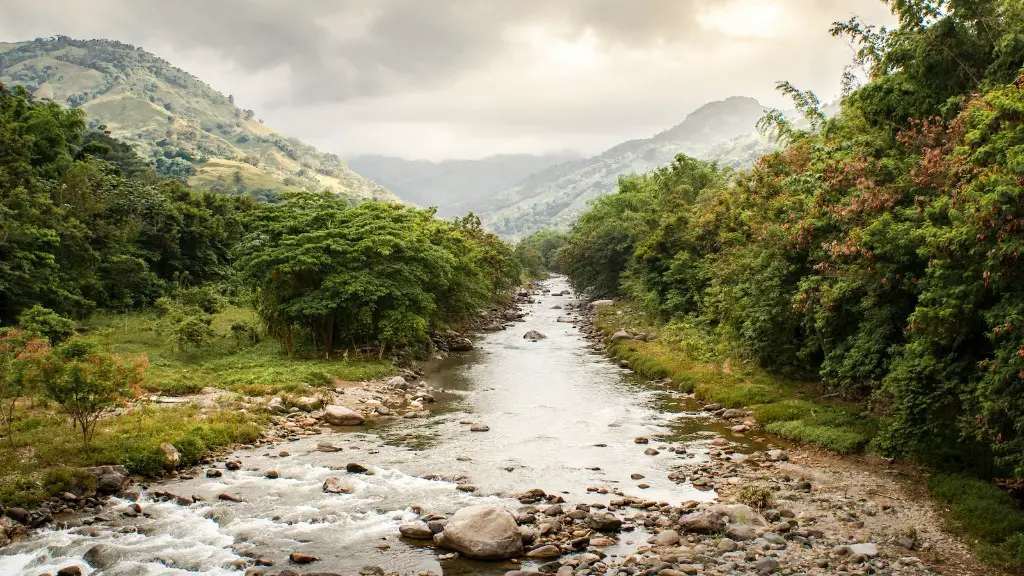International law
Ethiopia is strongly upholding its right to use of the Nile River as a resource for its citizens. According to international law, a country is entitled to utilize the waters of an international river so long as the withdrawal does not have a detriment to other countries transversely using it. Given that there is shared use of the Nile, Ethiopia is obligated to iterate its activities in order to prevent potential dispute or disagreement with other countries in case of any similar activities with regards to the utilization of the waters.
In order to protect its resources, Ethiopia created the Grand Ethiopian Renaissance Dam (known as GERD) which is the largest hydro-power project in Africa. The dam is intended to provide electric power to citizens that are facing energy shortages. The Ethiopian government claims that the use of the dam will not have a negative impact on the welfare of other states that use the Nile. Ethiopia’s desire to benefit from its own resources is backed by international law, but it has to be executed in accordance to the international laws of the Nile.
Benefits of Nile River
The Nile river is important not only for the life of communities in the Nile’s valley in Ethiopia, but also the economic development of the country. Ethiopia has one of the largest populations in Africa. The waters of the Nile have been used over the centuries as a vital asset for agriculture, hence providing nourishment and sustenance for millions of people. Additionally, the river supports the production of electricity for public usage during times of drought or low water levels. Therefore, the use and access to the Nile River is essential for Ethiopia to survive as a nation.
In recent years, the Ethiopian dam project has further highlighted Ethiopia’s right not only to use but more importantly control the water flowing down the Nile. International law permits this use and access to the river as part of a sovereign nation’s international rights.
Negotiations with Egypt
Given that the dam project has several implications for Egypt and Egypt’s ability to utilise the waters, the two countries have engaged in several long and arduous negotiations for an agreement over the use of the river and the GERD. Egypt fears that the GERD might interfere with its historic right to use the Nile and restrict its access to water for agriculture and other activities.
In accordance to international law, the negotiations have been based on compromises from both sides – Egypt wishes to obtain upstream access to the Nile, while Ethiopia seeks to be non-interfering with the downstream rights of Egypt. As a result, the nations have achieved what is known as the Declaration of Principles (DOP) which seeks to establish a mutual relationship between the countries concerning the utilization of the Nile, specifically with regard to the GERD.
Geopolitical implications
Despite the recent agreemet over the use of the river, there is an underlying political dispute between Ethiopia and Egypt. Ethiopia is trying to maintain its sovereignty over the access and use of its own resources, while Egypt is facing the potential of a strategic allegiance with its neighbor. In this scenario, the war of words between the two countries is merely a way of posturing in the negotiations for better outcomes.
The difficulty with the negotiation between Ethiopia and Egypt is the fact that the outcome will have to compromise the interests of both countries. However, the outcome could have had significant geopolitical implications on both states.
Environmental concerns
The Grand Ethiopian Renaissance Dam also has consequences for the environment. The construction and widespread use of the river could disrupt the biodiversity of the Nile river and cause irreplaceable ecological damage. Furthermore, the rich wildlife of the Nile could be influenced negatively by the wide-scale industrialization associated with the dam.
The environmental consequences of the dam project would be the most detrimental to the lower section of the river. In particular, the Sudd wetlands are considered to be a global treasure and are a UNESCO World Heritage Site due to their hosting of a vast array of plant and animal species.
Impact on local communities
The utilization of the Nile for electricity generation could also have an enormous impact on the local communities residing along its route. The river basin is home to millions of people and there are several endemic species that rely on the waters of the Nile for their survival.
Due to the construction of the Ethiopian dam, local communities could potentially be destabilized by drought and a loss of access to water, as well as the economic damages caused by the disruption of business activity in the region. This could further depress the already existing poverty and political instability in the region.
Ongoing challenges
It is apparent that Ethiopia still has a number of challenges to overcome in the effective implementation of the GERD. One of the challenges is to ensure that the project is pursued in accordance to international law, while at the same time avoiding any detrimental adverse outcomes to the neighboring countries.
The Nile’s waters are a finite resource and there is always the danger of it being over-utilised or misused. Monitoring and regulating the utilization of its waters will be important for the sustainability of the region.
Trade and commerce
The utilization of the Nile river could also provide an immense boost to trade and commerce in the region. The navigability of the river would open up trade routes from Ethiopia to Egypt and the Red Sea, which could in turn facilitate the development of tourism and the increase of economic opportunities for the citizens of the region.
The potential of this is immense and can potentially bring new hope and growth to the region, and hence facilitate the achievement of some of the United Nations’ sustainable development goals. Furthermore, it could also help Ethiopia’s standing in the international community as a responsible upstream river riparian.
Alternative energy sources
The utilization of the Nile River as an electric power source is not without risks to the environment and local communities. Therefore, it is important that alternative and sustainable energy sources are found and used.
Ethiopia could potentially benefit from the use of renewable energy sources, such as solar and wind power. Furthermore, the country could also pursue the use of other sources of electricity, such as geothermal and hydro-power.
This would enable the equitable utilization of the Nile, while also mitigating the potential damaging effects of the electric power generation from the GERD. In addition, Ethiopia could also benefit from the reduction of energy imports that it currently needs to sustain its current energy requirements.
Regional cooperation
The effective use and allocation of resources is essential for the development of any nation, Ethiopia included. In this context, regional cooperation plays an integral role in the negotiation between countries to reach beneficial agreements for all parties involved.
This implies that neighbouring countries should cooperate to develop strategies for the equitable and effective allocation of resources. In the case of Ethiopia and Egypt, this cooperation is fundamental to ensure that the interests of both countries are aligned and that a mutually beneficial treaty or agreement is reached.
Cooperation can also help in the development of mutually beneficial trade agreements, as well as partnerships between the countries. Ultimately, it is essential for the continued growth of the region and the advancement of both countries.


